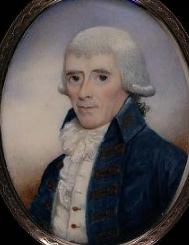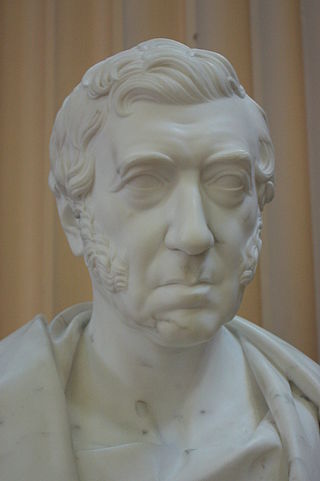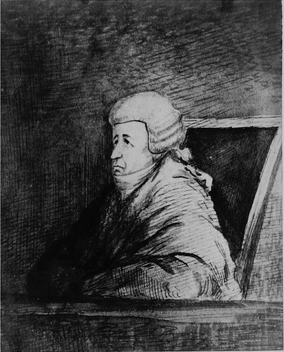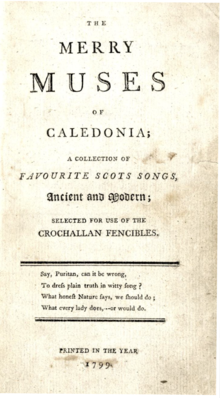
James Tytler was a Scottish apothecary and the editor of the second edition of Encyclopædia Britannica. Tytler became the first person in Britain to fly by ascending in a hot air balloon (1784).

John Gillies was a Scottish tutor, historian and man of letters.

William Creech FRSE was a Scottish publisher, printer, bookseller and politician. For 40 years Creech was the chief publisher in Edinburgh. He published the first Edinburgh edition of Robert Burns' poems, and Sir John Sinclair's influential "Statistical Accounts of Scotland". In publishing Creech often went under the pseudonym of Theophrastus.

William Smellie (1740–1795) was a Scottish printer who edited the first edition of the Encyclopædia Britannica. He was also a naturalist and antiquary. He was a joint founder of the Royal Society of Edinburgh, co-founder of the Society of Antiquaries of Scotland, and a friend of Robert Burns.

James Cunningham, 14th Earl of Glencairn was a Scottish nobleman, soldier and patron of Robert Burns.

Robert Wodrow was a Scottish minister and historian, known as a chronicler and defender of the Covenanters. Robert Wodrow was born at Glasgow, where his father, James Wodrow, was a professor of divinity. Robert was educated at the university and was librarian from 1697 to 1701. From 1703 till his death, he was parish minister at Eastwood, near Glasgow. He had sixteen children, his son Patrick being the "auld Wodrow" of Burns's poem Twa Herds.

George Dunbar FRSE was a Scottish classical scholar and lexicographer who authored a classical Greek dictionary, and Professor of Greek at the University of Edinburgh.

Restalrig is a small residential suburb of Edinburgh, Scotland. It is located east of the city centre, west of Craigentinny and to the east of Lochend, both of which it overlaps. Restalrig Road is the main route through the area, running from London Road, at Jock's Lodge, to Leith Links. It is in the ward of Lochend.
Alexander Lindsay, 4th Earl of Crawford (1423–1453) was a late medieval Scottish nobleman, and a magnate of the north-east of that country.

Greyfriars Kirkyard is the graveyard surrounding Greyfriars Kirk in Edinburgh, Scotland. It is located at the southern edge of the Old Town, adjacent to George Heriot's School. Burials have been taking place since the late 16th century, and a number of notable Edinburgh residents are interred at Greyfriars. The Kirkyard is operated by City of Edinburgh Council in liaison with a charitable trust, which is linked to but separate from the church. The Kirkyard and its monuments are protected as a category A listed building.
Sir Alexander Ogilvy, 1st Baronet was a Scottish politician and judge, lord of session under the title Lord Forglen.

The Encyclopædia Britannica Second Edition (1777–1784) is a 10-volume reference work, an edition of the Encyclopædia Britannica. It was developed during the encyclopaedia's earliest period as a two-man operation founded by Colin Macfarquhar and Andrew Bell, in Edinburgh, Scotland, and was sold unbound in subscription format over a period of 7 years. Most of the medical and scientific articles, as well as the minor articles, were written by James Tytler. All copperplates were created by Bell.

The Encyclopædia Britannica First Edition (1768–1771) is a 3-volume reference work, an edition of the Encyclopædia Britannica. It was developed during the encyclopaedia's earliest period as a two-man operation founded by Colin Macfarquhar and Andrew Bell, in Edinburgh, Scotland, and was sold unbound in subscription format over a period of 3 years. Most of the articles were written by William Smellie and edited by Macfarquhar, who printed the pages. All copperplates were created by Bell.

Adam Gillies, Lord Gillies (1760–1842) was a Scottish judge.
The Edinburgh Magazine and Review was a Scottish periodical, published monthly from 1773 to 1776. It was founded by Gilbert Stuart, who pursued an aggressive editorial line that eventually led to the magazine's demise.

Aeneas James George Mackay was a Scottish lawyer and academic, known as a legal and historical writer.

Alexander Irving, Lord Newton FRSE (1766–1832) was a Scottish judge who served as professor of civil law at Edinburgh University from 1800 to 1826. He was a Senator of the College of Justice.

Robert Aiken was one of Robert Burns's closest friends and greatest admirers. He was born in 1739 in Ayr, Scotland. His father John Aiken, was a sea captain who owned his own ships and his mother was Sarah Dalrymple, distantly related to the Dalrymples of Stair. He became a writer or lawyer in Ayr and was referred to by Burns as "Orator Bob" in his poem "The Kirk's Alarm". Robert was famous for the power, beauty and quality of his oratory as his nickname infers.

The Merry Muses of Caledonia is a collection of bawdy songs said to have been collected or written by Robert Burns, the 18th-century Scottish poet.
















